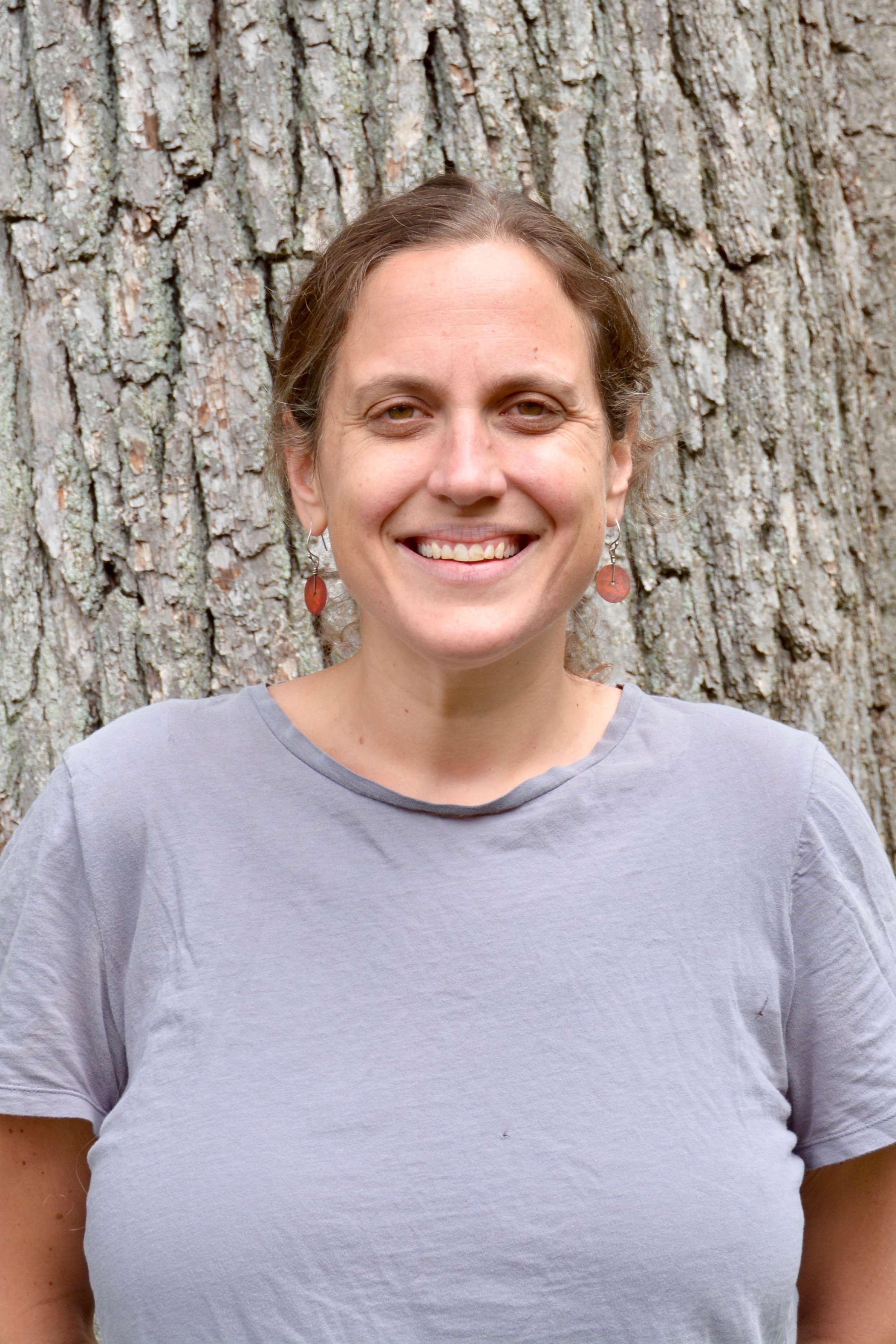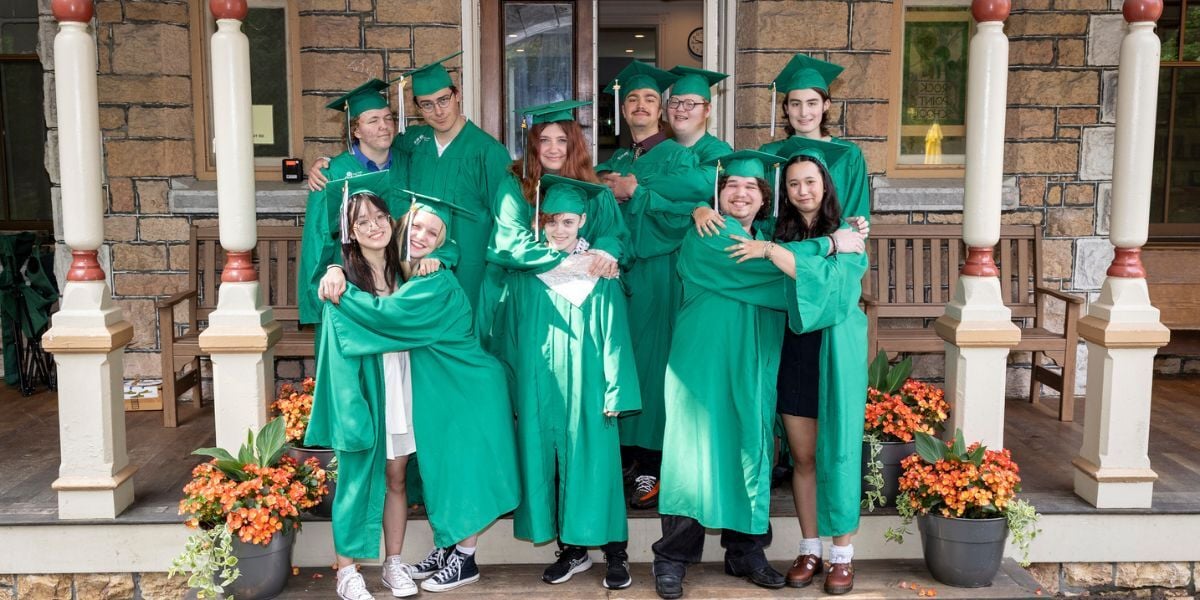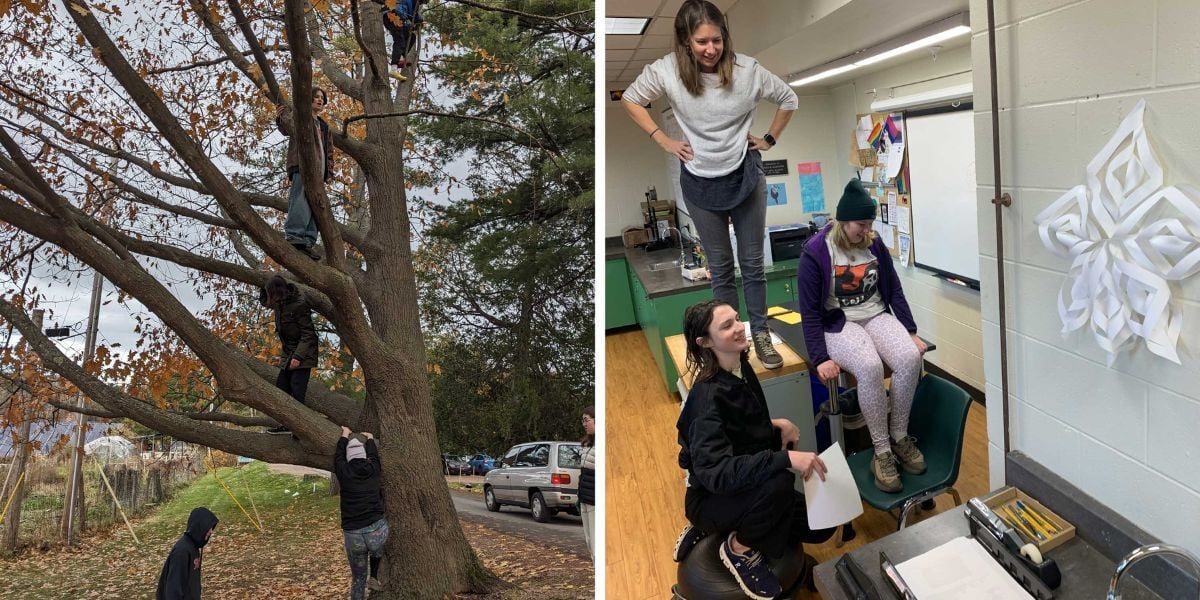How Friction Fosters Connection and Builds Community
In an age where “frictionless” conveniences like instant deliveries and AI interactions promise to make life smoother and easier, a lesser-known cost...
3 min read
 Abbey Baker
:
September 25, 2025
Abbey Baker
:
September 25, 2025

“Writing is like driving at night; you can only see as far as the headlights, but you can make the whole trip that way.”
- E.L Doctorow
While E.L Doctorow was talking here about the writing process, I use this passage often when I talk to students about post-high school planning. Rock Point students are bright, capable, creative, independent thinkers, who have needed some extra support and guidance to unlock their potential in the classroom and beyond.
At Rock Point, they often find their stride. They make strong relationships with teachers, master academic challenges, find hobbies that inspire them, and take on leadership roles outside of the classroom. And then midway through their junior year, we ask them to think about the question: what might you want to do after high school?
Understandably, many of our students react to this question wide-eyed, anxious and uncertain about whether they are ready to tackle this next step in their growing process. That’s when I tell them about the headlights. I assure them they are not supposed to know all the answers, and that the process is one we will move through together, one step at a time. When anxious students are not sure they’re ready to begin the future-planning process at all, I offer to shine a light on each part of the process, one step at a time, just as far as the headlights can show us. I find students relax at the idea of making the whole trip this way.
Throughout the process, I have found the following tenets to be crucial to helping students feel confident, heard, and capable of achieving their next steps after high school:
Remember that not every student will be ready to start the process just because the calendar says it’s time. While my timeline for students suggests certain steps at certain times – for example, building a list of post-high school options by the end of junior year – students are varied in their readiness for this process. I follow students’ leads, while not losing sight of the calendar myself. There are some pieces that are more of a priority than others, and I am selective about what I ask students to do and when.
Offering students a timeline that starts in their junior year, which shows all of the small milestones they’ll meet, can help to demystify the post-high-school planning process. For students who have anxiety, struggle with executive function, and are not used to school success, I find that we can never be too explicit in explaining the process. Don’t make assumptions about what they already know; if “Taking the SAT” is part of their process, include in the timeline when they will prepare for the SAT. If “Finish a College Essay” is in their timeline, make sure it also includes dates by which to finish drafts and receive feedback from readers. Taking the time to sit with each student and plan this months-long process pays off in their sense of confidence, and gives them skills for long-term planning they’ll use in the future.
Like they are to everything at Rock Point School, relationships are central to the future-planning process. If a student feels heard, understood, and like an adult is truly interested in their perspective, they are much more likely to have a positive process. I often start the process with meetings that are simply about getting to know each other. We might take a walk, leave campus to go get coffee, or talk on the front porch about the most recent movies we’ve loved. Once students feel connected to an adult in the process, they are much more likely to share about their hopes and goals for the future. I find other ways to connect with students throughout their days at Rock Point – lunch tables, electives, and advising all provide opportunities for this. It is helpful to be a part of their life in a bigger way than just a weekly future-planning meeting.
At Rock Point School, taking Senior Seminar becomes a rite of passage. In this weekly class, we cover the steps of the college application process, explore options, host admissions visitors, plan college visits, and more. While it is an important time for students to get work done, perhaps more importantly it is a time for them to feel solidarity and community with one another. When students see that they are not alone in the process, their fears and anxieties are normalized, and they are bolstered by the solidarity they find in working alongside their peers.
I have told many an anxious student, “I know you are too overwhelmed to be excited about this, so I will be excited enough for both of us!” Whether they finish an application for a job, get accepted to college, or commit to a college or gap year program, each milestone is worth celebrating. Often students get so wrapped up in the anxiety of trying to plan life after high school, they forget that this can actually be a joyful time, where they are stepping into a world that holds so many possibilities for them. I try to remind them of this fact, and keep the joy and celebration central throughout the process.
 Looking Ahead With Confidence
Looking Ahead With ConfidenceThe process of planning for life after high school is a challenging one, as young people face an uncertain world. Often this phase is the first time they have been in charge of what they want their lives to look like, and they may not be sure they know the answer. Even with patience, planning, and caring adults to guide them, students may still feel this anxiety. My hope is that in addition, they will also feel a sense of excitement, confidence, and readiness for what is ahead.

In an age where “frictionless” conveniences like instant deliveries and AI interactions promise to make life smoother and easier, a lesser-known cost...

As we are heading into our vacation, I am thinking about a student at Rock Point from many years ago who really struggled to get back into the school...

Every quarter, students choose from several electives, which meet three times a week to supplement the curriculum and provide a fun way to start...